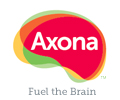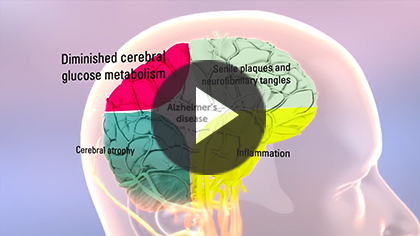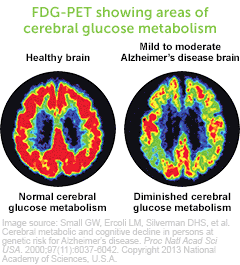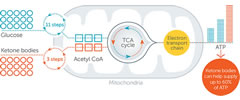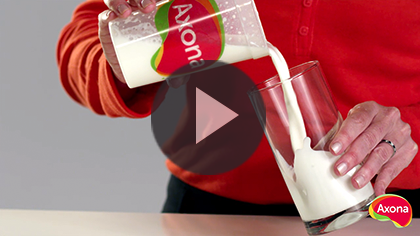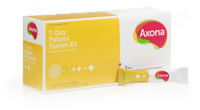Axona clinical trials
NeoBee 895 medium-chain triglyceride: Phase IIa trial demonstrates correlation between ketosis and improved ADAS–Cog scores in APOE4(-) patients with Alzheimer’s disease1
This was a randomized, double-blind, placebo-controlled, phase IIa trial that investigated the effects of daily administration of NeoBee 895 (a source of medium-chain triglycerides; MCTs) in 20 patients with probable Alzheimer’s disease or mild cognitive impairment. Patients were stratified by APOE4 status. Efficacy was evaluated with the Alzheimer’s Disease Assessment Scale–Cognitive subscale (ADAS–Cog) test, and postdose β-hydroxybutyrate (BHB) ketone body levels were recorded.
MCT treatment with NeoBee 895 facilitated performance on the ADAS–Cog test for APOE4(-) patients but not for APOE4(+) patients. Higher BHB levels were associated with greater improvement in paragraph recall.
AC-1202: Phase IIb trial confirms correlation between ketosis and improved ADAS–Cog scores in APOE4(-) patients with Alzheimer’s disease2
AC-1202 was a randomized, double-blind, placebo-controlled, 90-day, phase IIb, multicenter trial that investigated the effects of daily administration of Axona (AC-1202) in 152 patients with probable mild to moderate Alzheimer’s disease.
In this trial, Axona improved ADAS–Cog scores in APOE4(-) patients, compared with placebo. Patients who consumed at least 80% of the total Axona dose over 90 days experienced the greatest improvement. Patients began to decline when they stopped taking Axona during the 2-week washout period.
